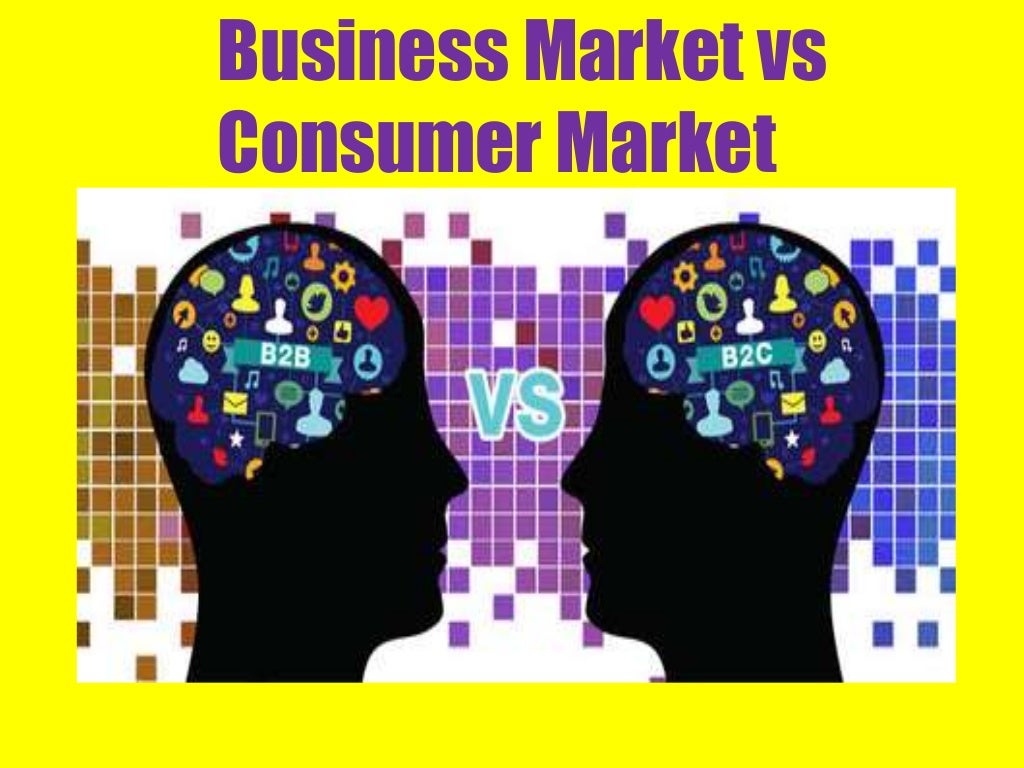When Compared To The Consumer Market The Business To Business Market

Difference Between Business Market And Consumer Market Difference Between Number of consumers. consumer markets see more consumers making purchases, so merchants build stores and websites to handle a higher traffic volume. consumers often purchase products based on personal preferences, so b2c businesses often have a wide variety of products available to consumers. in a business market, sellers often have few buyers. The consumer market is made up of businesses that sell their goods directly to consumers, while the business market is made up of businesses that acquire both products and services used in the manufacturing of other goods and services. it’s important to know and understand the key differences between consumer and business markets, as it will.

What Is The Business Market And How Does It Differ From The Consumer Business market vs. consumer market: comparison table summary of business market vs. consumer market business markets refer to organizations, businesses or entities that acquire products and services for use in the production of other services and products. 6. when it comes to the business market, the buying process is often more complex, involving multiple decision makers and longer sales cycles. in the consumer market, purchasing decisions are typically more straightforward, and the buying process is often shorter and more emotion driven. 9. products in the business market are usually tailored. In contrast, a consumer market, also known as the b2c (business to consumer) market, revolves around the buying and selling of goods and services to individual consumers for their personal use or consumption. this type of market involves transactions between businesses and individual consumers, such as those in the retail and e commerce sectors. In a consumer market, you can find many customers, whereas in the business market there are only a few customers or clients. the purchase volume is high in the business market as compared to the consumer market. in the consumer market, final goods are sold to consumers. on the other hand, in the business market, intermediate goods are sold to.

Difference Between Consumer Market And Business Market With Comparison Chart Key Differences In contrast, a consumer market, also known as the b2c (business to consumer) market, revolves around the buying and selling of goods and services to individual consumers for their personal use or consumption. this type of market involves transactions between businesses and individual consumers, such as those in the retail and e commerce sectors. In a consumer market, you can find many customers, whereas in the business market there are only a few customers or clients. the purchase volume is high in the business market as compared to the consumer market. in the consumer market, final goods are sold to consumers. on the other hand, in the business market, intermediate goods are sold to. Another distinction between these two market lies in how each market promotes their products and services. in the business market, products are sold to other companies, and thus the method of advertisement will slightly vary from that of the consumer market. here, companies do not involve media advertisement to market their products and services. Table 4.2 business to consumer markets versus business to business markets: how they compare; consumer market business market; many customers, geographically dispersed: fewer customers, often geographically concentrated, with a small number accounting for most of the company’s sales: smaller total dollar amounts due to fewer transactions.

Comments are closed.